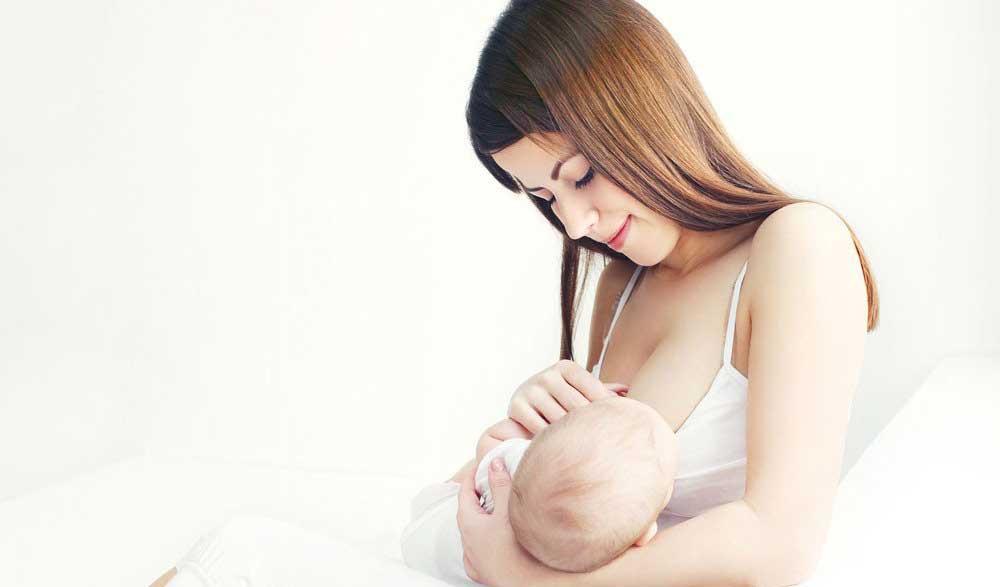BABY
Can Babies Be Allergic to Breastmilk?
Allergies may explain why your baby cries after nursing.

Written by
Dr. Harvey Karp

Milk Allergy in Infants
If your baby seems extra fussy, gassy, barfy, snorty, or rashy you may wonder, ‘Can babies be allergic to breastmilk?’ The answer? No, the natural breastmilk proteins are so mild that they do not provoke allergies in babies. However, here is the big BUT. Babies can be allergic to foods that you eat…tiny bits of which can sneak into your milk!
How do we know infants do not get breastmilk allergies? In 1983, Swedish scientists proved that even colicky babies are totally fine with their mum’s milk, however, they can be allergic to proteins that pass through mum’s intestines into her bloodstream and then into her milk.
And, those foreign invaders can sometimes create major hassles. About 10% of colic is caused by a baby food allergy—most often the common allergenic foods, like dairy, soy, citrus, eggs, nuts, etc.—or food sensitivity—like caffeine in coffee, chocolate, tea, cola, Chinese herbs, or decongestant medicine. (Most colic has nothing to do with the intestines. It is actually an imbalance of too much chaos and too much quiet and too little rhythmic stimulation. That is why fussy babies can often be soothed by the 5 S’s.)
Milk Allergy Symptoms in Babies
Allergies are an overreaction of the immune system as it tries to protect us from foreign proteins. In older children and adults, the fight between your body and say, cat dander or pollen, takes place ‘up high,’ causing a runny nose or sneezing. But with infants, the allergy battleground is in the intestines. Here are the most common symptoms of milk allergies in infants.
- A lot of spitting up
- Vomiting
- Signs of abdominal pain (crying and grunting)
- Slimy diarrhea or blood in stools
- Hives
- Eczema (itchy red rash inside knees, elbows, neck) or Scaly skin rash
- Coughing or wheezing
- Watery eyes, runny nose’ or stuffy nose
- Swelling (especially of the lips, tongue’ or throat)
Diagnosing Breastfeeding Allergies
Within 30 minutes of a mum eating a meal, tiny bits of proteins make it all the way from her belly to her breast…and can hang out in there for hours. As mentioned, the most common food allergies babies fall prey to are cow’s milk and soy, and much less common are eggs, nuts, citrus, wheat, and shellfish. (The exact same things that cause allergies in big people.) Your healthcare provider may recommend you go a week without consuming these foods (also known as an “elimination diet”…also known as just chicken and water…ugh!) to see if the symptoms improve, which usually takes 3-7 days to notice. And then, if things do get better, your health care provider will likely have you do a food challenge, to see if the symptoms come back, which usually happens in just 1-2 days.
If you have concerns about your baby possibly having allergies (from fussing to huge spit ups to stringy, red-tinged mucus in the poo), make sure you discuss that with your healthcare provider.
Disclaimer: The information on our site is NOT medical advice for any specific person or condition. It is only meant as general information. If you have any medical questions and concerns about your child or yourself, please contact your health provider. Breastmilk is the best source of nutrition for babies. It is important that, in preparation for and during breastfeeding, mothers eat a healthy, balanced diet. Combined breast- and bottle-feeding in the first weeks of life may reduce the supply of a mother's breastmilk and reversing the decision not to breastfeed is difficult. If you do decide to use infant formula, you should follow instructions carefully.
SHARE THIS ARTICLE
PARENT PICKS
Bestsellers



















